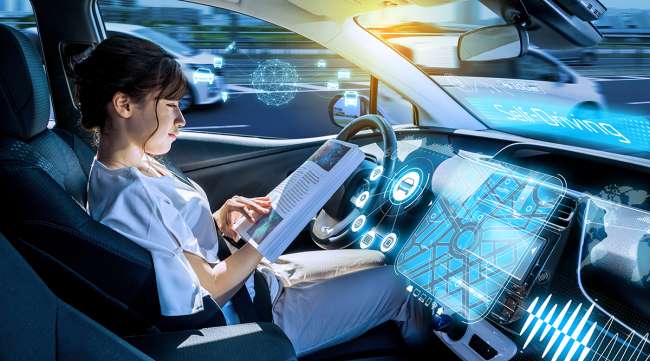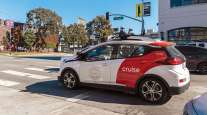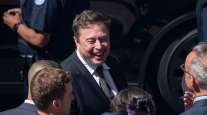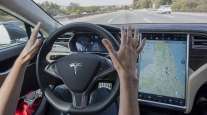San Francisco Mayor Says Driverless Cars Are ‘Future of the Streets’

Days after a fatal self-driving-car collision in Arizona, six makers of driverless vehicles came to San Francisco on March 22 to demonstrate their technology — and emphasize its safety features — to city leaders and public-safety officers.
“Autonomous cars are the future of the streets of San Francisco and many other cities around the globe,” Mayor Mark Farrell said at a news conference during the daylong demonstration and roundtable at Bill Graham Civic Auditorium.
The city has no jurisdiction to regulate robot cars; that happens at the state level. But Farrell said he wants to make sure the streets will be safe.
The event was designed for automakers to inform police, firefighters, transit officials and others how their cars work and how they interact with first responders, especially when they have no driver at all.
On March 18, an Uber car operating in autonomous mode but with a backup driver struck and killed a pedestrian in Tempe, Ariz., casting a pall over the emerging industry.
“Incidents like that are exactly why I’m asking these companies to come to San Francisco and partner with us as a local government so we can all collectively put public safety first,” Farrell said in an interview before the event.
The crash shows that the technology “is not ready for prime time,” Mark Rosekind, chief safety innovation officer of Zoox, a closely held Menlo Park self-driving startup, said at the news conference. But within a year or two it might be, he said.
RELATED: Uber crash is nightmare driverless world feared but expected
Rosekind headed the National Highway Traffic Safety Administration under President Barack Obama, making him the nation’s top safety regulator. During his tenure, that agency drafted the first federal policy on driverless cars.
While the Arizona fatality was a tragedy, Rosekind said, 100 Americans will die in traffic accidents today — and tomorrow, and the next day, and every day, adding up to more than 37,000 deaths a year.
Wiping out all traffic deaths is the ultimate goal of the driverless car industry.
“This technology is the first new real tool in 100 years that could actually get us to zero” traffic deaths, he said.
Rosekind was the only company representative to speak at the event, which was closed to the press and public. The San Francisco officials got close looks at autonomous cars from Zoox and GM Cruise, and participated in a roundtable with all six companies.
RELATED: After Uber crash, Florida still welcomes free-range robot cars
In attendance were Waymo, the self-driving unit of Alphabet; Phantom Auto, which makes a remote-control system to monitor and communicate with robot cars; General Motors’ Cruise unit, which is based in San Francisco; and ride-hailing companies Uber and Lyft.
Participating in the event implies that those companies plan to eventually test cars with no drivers.
California will start allowing no-driver vehicles next month, although no companies have yet applied for permits to test them. Farrell asked any manufacturers that plan to have no-driver vehicles in San Francisco to voluntarily come to talk to the city. He said he is encouraged by the responses. Other companies have expressed interest in participating, and Farrell hopes to hold several more such events.
“We want to be proactive, to get ahead of how our officers will interact with these vehicles,” said Teresa Ewins, San Francisco Police Department commander of municipal transportation.
Distributed by Tribune Content Agency, LLC




